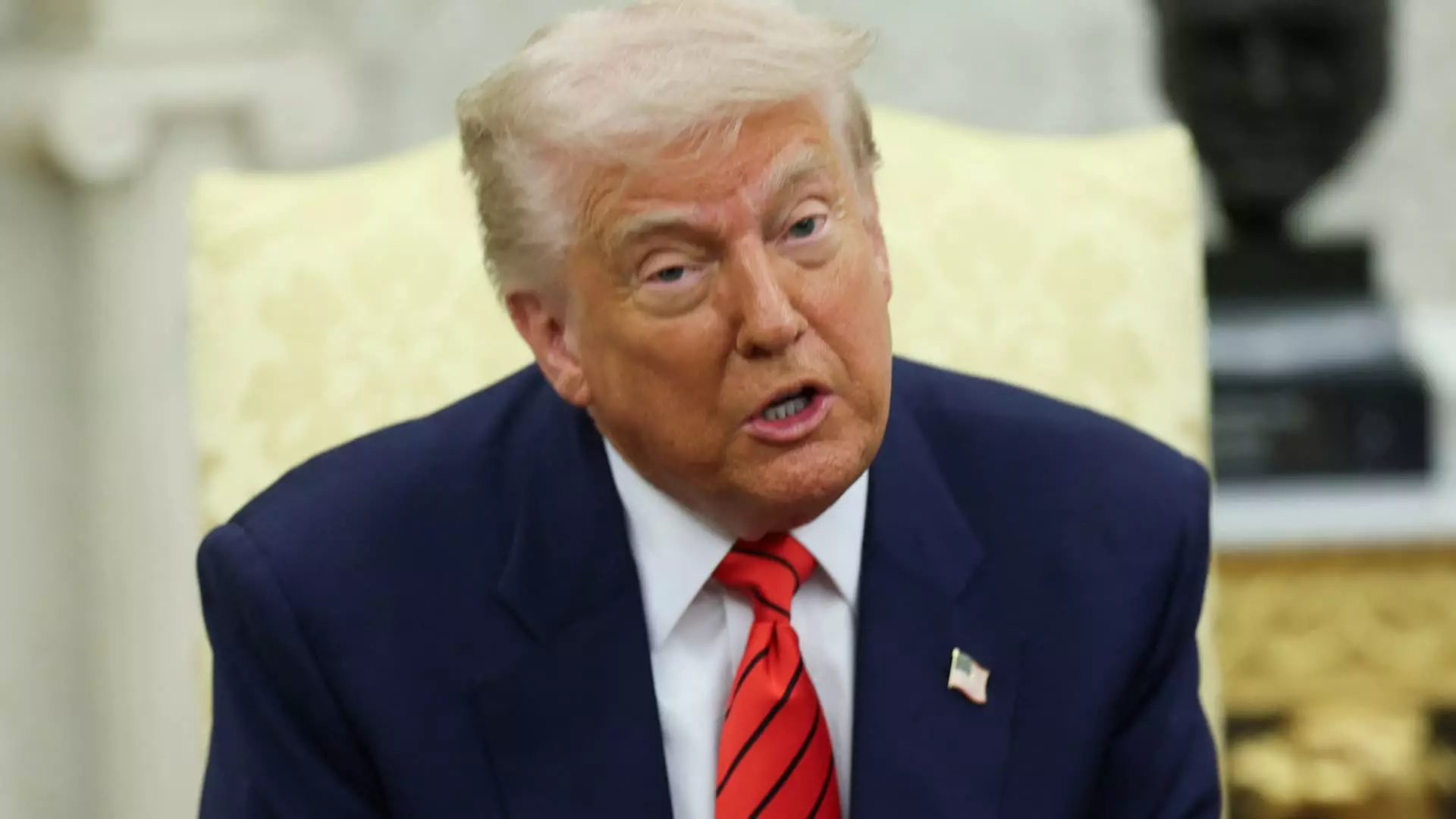In an unexpected twist, President Donald Trump recently expressed reservations about the necessity of formal trade deals with international partners. This marks a stark divergence from the ongoing narrative pushed by his administration that heralds the signing of multiple bilateral agreements as a daunting priority. During a meeting with Canadian Prime Minister Mark Carney, the President voiced his frustrations, bluntly declaring, “We don’t have to sign deals, they have to sign deals with us.” Such a statement not only signals a fundamental shift in strategy but also hints at deeper ideological convictions about America’s role in global trade.
Trump’s approach can be seen as a manifestation of a broader belief that the United States is inherently more powerful and desirable in trade negotiations, effectively positioning itself as a “market that others need.” This insouciance towards formal agreements juxtaposes the urgent pleas from trade advisers and economic experts advocating for tangible outcomes to ameliorate fears of a slowing economy. If one were to dissect this dichotomy, it’s clear that the President’s assertion reflects a disdain for traditional diplomacy and a more visceral, transactional view of international trade relations.
Confusion Among Allies and Investors
The ramifications of Trump’s comments are multifaceted, creating a ripple effect not just within U.S. shores but also among its trading allies. His remarks come after weeks of a concerted effort by his administration to project an image of progress, casting a wide net of optimism over prospective deals with countries like India, South Korea, and Japan. Yet, when Trump nonchalantly dismisses the need for formal agreements, confusion ensues among investors and allies alike.
Market reactions to such ambiguous proclamations cannot be ignored. Following Trump’s declarations, stock values dipped, revealing the anxieties felt by business leaders who are now confronted with a mercurial political landscape. These economic stakeholders thrive on predictable frameworks, seeking clarity as they navigate the complexities of international trade. The stark contrast between the administration’s earlier assurances and Trump’s recent misgivings could hinder foreign investments at a crucial juncture, where global economies are gingerly probing for recovery pathways.
The Disintegration of Trust Within the Administration
Compounding the confusion is Trump’s apparent frustration directed at his top aides like Treasury Secretary Scott Bessent. In a significant reversal, he accused them of raising expectations about imminent trade agreements. Trump’s admission serves as a reminder of the discord that often permeates his administration—a discord that can alienate the very experts positioned to guide economic policy effectively.
This dynamic raises essential questions about the internal coherence of the Trump administration’s trade agenda. If key figures within the White House fall prey to the President’s whimsical narrative shifts, then how can they be expected to construct reliable strategies? How do they plan to execute trade policies effectively when the message is transmitted through a lens of improvisation?
Reconstructing America’s Trade Narrative
Amid these disarrayed dialogues lies a pressing inquiry: What does a reimagined American trade system look like under Trump’s vision? His rhetoric of “super luxury store” suggests a unilateral elevation in marketplace dynamics—conveying the notion that products in America should be perceived as premium offerings rather than mere transactional commodities. However, this conceit comes with inherent risks.
The idea that pricing should be dictated purely based on perceived value overlooks critical variables such as competitiveness and market accessibility. Trade is not merely a binary exchange of goods; it’s a complex web of mutual dependencies and collaborations. Trump’s posture, while assertive, risks leaving the door open to protectionism in a world increasingly inclined towards globalization. America’s economic clout hinges on its ability to navigate the delicate balance between asserting dominance and fostering cooperative relationships.
The Illusion of Future Deals
With a lack of concrete commitments, the cycle of vague promises about “potential deals” lingers in the air, casting an unreliable shadow over U.S. trade relations. The President’s suggestion that “one day we’ll come and we’ll give you 100 deals” is emblematic of a speculative approach, which many analysts deem unsustainable. The perpetual promise of future gains can often lead to disillusionment and skepticism from both allies and domestic stakeholders.
As it stands, Trump’s administration has yet to produce tangible frameworks for meaningful bilateral agreements. The commendable notion of trading from a position of strength should not devolve into a cavalier dismissal of strategic alliances. The success of American trade policy should be rooted in integrity and transparent diplomacy, wherein both sides genuinely seek to create mutual benefits.
In the ever-evolving landscape of global trade, the stakes have never been higher. The urgency to establish meaningful relationships is imperative, lest the tide of economic nationalism erode the very foundations upon which the prosperity of the American economy stands.

